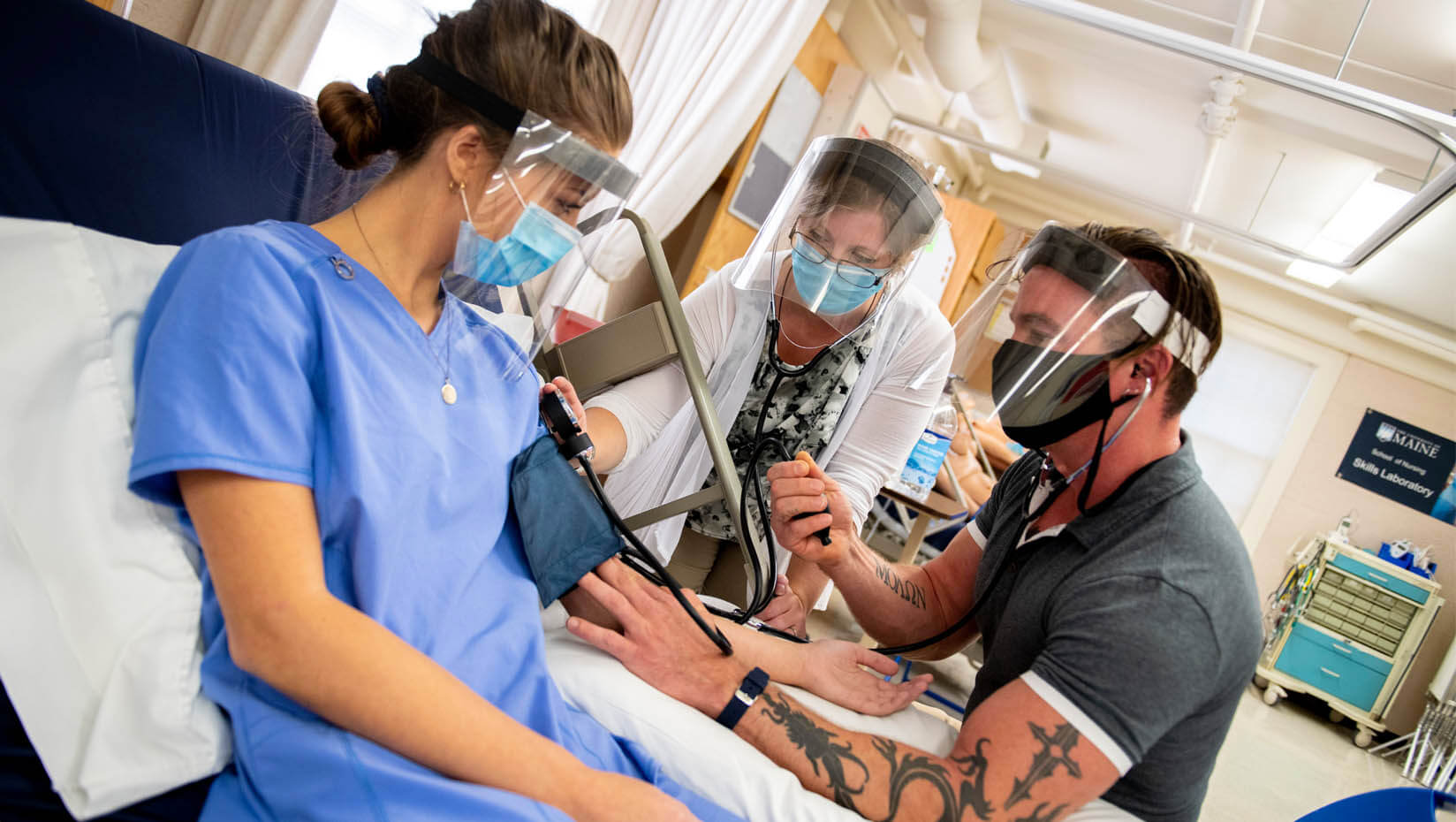
Flexibility from classroom to clinic
Nursing is a profession of action that is best taught through hands-on experience. Every student enrolled in the University of Maine’s nursing program completes 200 hours of laboratories and simulations, and 740 hours of direct care clinical experience.
This resource-intensive approach pays dividends to UMaine’s nursing students, 97 percent of whom pass their National Council Licensure Examination for the Registered Nurse on the first attempt — compared to a 2020 national average of 90.96 percent. Once licensed, all of the school’s alumni attain employment in their field.
When the COVID-19 hit this spring, safety measures upended how faculty could deliver these experiences. To adapt, the School of Nursing completely transformed how it engaged with students.
“We decided that our priority would be our students. Our overall approach was to demonstrate compassion and support for our students’ progression while maintaining the rigor and quality of our programs,” said Kelley Strout, director and associate professor at the School of Nursing.
“We connected with every student within the first week of remote learning.”
As soon as the transition to remote learning was announced, faculty immediately started working to adopt virtual modalities for classes and clinical.
Maine’s Nursing Board allowed up to half a student’s clinical experience for each course to be virtual. Faculty evaluated each student’s clinical hours to determine who would be eligible to complete those courses remotely.
Faculty also assembled and distributed laboratory kits for each student within 24 hours of the directive to transition to remote learning. Students then demonstrated their skills with the equipment in individual virtual meetings with the faculty.
As final grades were filed in May, faculty were already thinking about the fall. They planned for a worst-case scenario — outbreaks on campus that would require another transition to remote learning. They evaluated each course week-by-week to identify the competencies and skills each student needed to demonstrate in-person.
“Throughout our spring experience, we learned that students need face-to-face laboratory and simulation experiences to meet our program outcomes. For example, we cannot send every student home with an IV pump or needles, so practicing and assessing those skills through Zoom is not a safe or practical option,” Strout said.
All face-to-face laboratory and simulation courses were then condensed into the first three weeks of the semester. Students spent as many as 12 hours a week in laboratories during that time, working to master these critical skills before a possible outbreak had a chance to emerge.
The nature of the skills students develop in these laboratories often requires close contact with others — making staying 6 feet apart impossible.
As a precaution, students were required to wear surgical masks and face shields that were printed on 3D printers at UMaine’s College of Engineering.
The School of Nursing also found creative ways to spread out and hold smaller classes without reducing enrollment. The school’s main administrative office was converted into laboratory space. Simulation equipment was spread out and even moved outdoors.
Didactic courses, which typically enroll 45 to 55 students, were split into halves or thirds. Faculty developed online content that students reviewed prior to abbreviated class meetings. Time together was dedicated to active learning where students applied the content from virtual lectures to case studies, National Council Licensure Examination Registered Nurse questions, and skills stations.
These laboratories, simulations, and didactic courses are, even under normal circumstances, resource and time-intensive — both of which are in short supply in the pandemic. But these practical opportunities to apply theory are critical to skills for future nurses to develop.
“The public’s lives depend on students knowing important information and applying knowledge to complex cases through critical thinking,” Strout said.
The School of Nursing is seeking support for enhancements to learning facilities in response to the pandemic. More information is available on the University of Maine Foundation’s website.
Contact: Erin Miller, erin.miller@maine.edu
